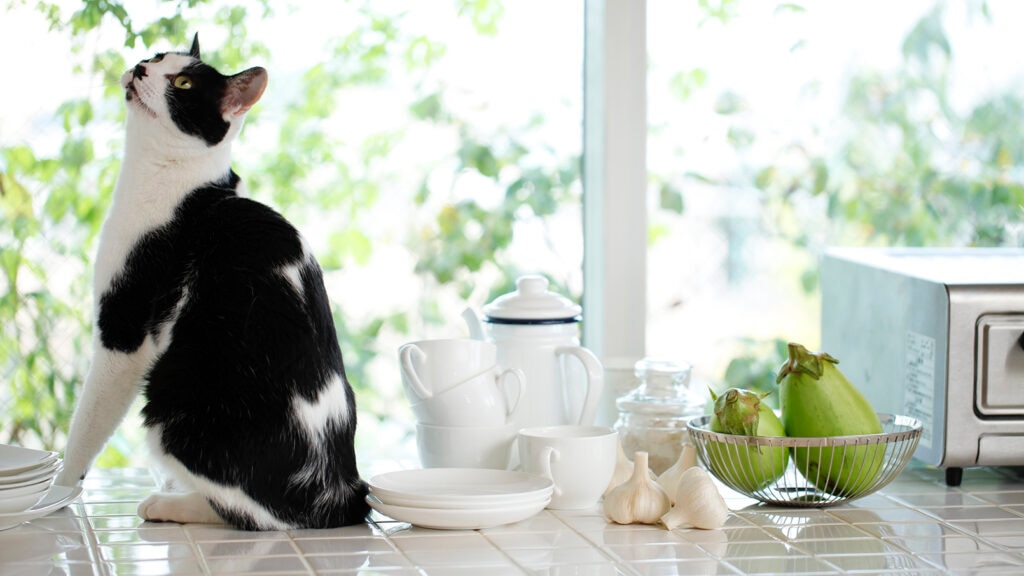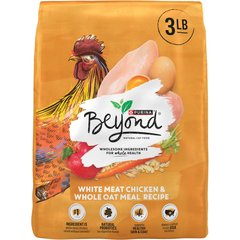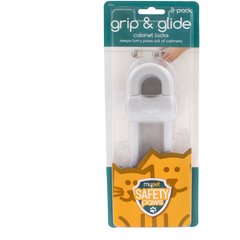Can Cats Eat Garlic?

Photo by kazoka30/iStock/Getty Images Plus
Garlic might be a staple in your kitchen, adding flavor to everything from soups to sauces, but is garlic toxic to cats? Or can cats eat garlic too? The answer is no—cats can’t eat garlic safely in any form.
Even small amounts can damage red blood cells, potentially leading to anemia and other serious health issues. Knowing why garlic is dangerous, how much is toxic, and what to do if your cat eats some is key to keeping them safe.
If your cat’s eaten garlic, this is a medical emergency. Take them to the vet right away.
Key Takeaways
- Garlic is toxic to cats. Even small amounts can damage red blood cells and lead to anemia and serious health complications.
- Symptoms may take a few days to appear, but they can be serious. Prompt veterinary care is crucial.
- Prevention is key. Keep all forms of garlic—fresh, cooked, and powdered—out of reach, and avoid feeding your cat any human foods that contain it.
Can Cats Have Garlic?
No, cats can’t have garlic. Garlic is part of the allium family, which also includes onions, leeks, and chives. All of these contain compounds that are toxic to cats because their bodies can’t process them safely. This toxicity means that even small amounts can be harmful.
In fact, cats are the most susceptible to garlic toxicity (even more so than dogs).
Why Is Garlic Bad for Cats?
Garlic is dangerous for cats because it contains thiosulfates—a sulfur compound also found in onions, leeks, and chives. Cats lack the enzymes needed to break these down safely.
When ingested, thiosulfates damage red blood cells, leading to hemolytic anemia. This type of anemia reduces oxygen delivery to organs and tissues and can cause serious health complications.
This chain reaction is what makes garlic so toxic. The effects can be mild if only a small amount is eaten, but can become life-threatening in larger doses.
The major risks of hemolytic anemia include:
How Much Garlic Is Toxic to Cats?
There’s no safe threshold of garlic for cats (even tiny amounts can be toxic).
Research shows that as little as 5 grams of onion per kilogram of body weight can be toxic, and garlic is three- to five-times more potent. That means just 1 gram of garlic per kilogram can be harmful.
To put that in perspective, an average garlic clove weighs about 5 grams. For an 11-pound cat, eating a single clove could be a toxic dose.
Symptoms of Garlic Toxicity in Cats
Symptoms of garlic toxicity don’t appear right away. In most cases, it can take hours or even days as the garlic builds up in your cat’s system and anemia develops. When signs do show, you’ll most often see:
- Vomiting
- Diarrhea
- Loss of appetite
- Lethargy or weakness
- Pale gums
- Panting or rapid breathing
- Increased heart rate
- Collapse (in severe cases)
My Cat Ate Garlic—What Do I Do?
If your cat ate garlic, it’s best to err on the side of caution and seek advice from your veterinarian or the Pet Poison Helpline (855-764-7661; consultation fee applies) on what to do next. Take these steps even if symptoms haven’t developed; the quicker you’re able to get treatment for your cat, the better the outcome may be.
When calling, it’s helpful to have the following information handy:
- How much garlic your cat ate
- What form it was in (raw, cooked, powdered, paste, etc.)
- When it happened
Don’t attempt to induce vomiting at home unless your veterinarian or experts at the Pet Poison Helpline recommend it. Instead, follow their instructions closely—which may include bringing your cat to an emergency vet.
Once your cat is stable, your veterinarian may recommend transitioning to limited-ingredient cat food or sensitive stomach treats to support recovery and prevent future issues.
Recommended Products
How Do Vets Treat Garlic Poisoning in Cats?
Specific treatment for garlic poisoning depends on how much garlic your cat ate and how quickly they receive care. A vet may:
- Induce vomiting (generally helpful if caught within two hours of ingestion)
- Give activated charcoal to limit absorption
- Provide IV fluids to help hydrate and support the kidneys
- Offer oxygen therapy
- Give blood transfusions (in severe cases)
How Can I Prevent My Cat From Eating Garlic?
The best way to protect your cat is to keep garlic completely out of their reach. Because cats are naturally curious (and sometimes sneaky), cat-proofing takes a little extra planning and awareness.
Here are some things you should do:
- Avoid sharing any foods seasoned with garlic (pasta, soups, sauces, and pizza, to name a few).
- Store garlic bulbs and powders out of reach and, ideally, behind a closed cabinet door.
- Double-check ingredient lists on pet food, treats, and supplements to make sure they don’t contain garlic powder or garlic extract.
- Put garlic-containing leftovers away quickly and don’t leave them unattended.
- Remind family members and guests not to feed your cat table scraps.
- Keep trash cans securely covered so your cat can’t get into food scraps that may contain garlic. Cat-proof trash cans and locking cabinet latches can help add an extra layer of safety.
Recommended Product
FAQs About Cats and Garlic
Can cats eat onions?
No, cats can’t eat onions. Like garlic, onions are part of the allium family and are toxic to cats. Even small amounts can be harmful, so it’s safest to avoid them altogether.
What happens if my cat eats a little bit of garlic?
Even a small amount of garlic can upset your cat’s stomach and, in some cases, start damaging their red blood cells. Because cats are more sensitive to garlic than dogs or people, even a “little bit” isn’t safe. It’s best to call your veterinarian right away for guidance.
How long does it take for a cat to react to garlic?
It can take several hours to a few days for a cat to react to garlic because the signs don’t appear until red blood cells start getting damaged. That’s why it’s essential to contact your veterinarian immediately, even if your cat seems fine at first.
Can cats eat garlic bread?
No, cats can’t eat garlic bread. In addition to garlic, garlic bread contains oil and butter, which can cause stomach upset.
Can cats eat garlic powder?
No, cats can’t eat garlic powder. Garlic powder is more concentrated than fresh garlic, making it even more dangerous for cats. Avoid giving garlic to your cat in any form.







